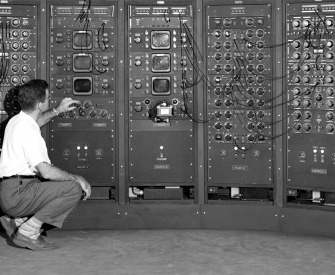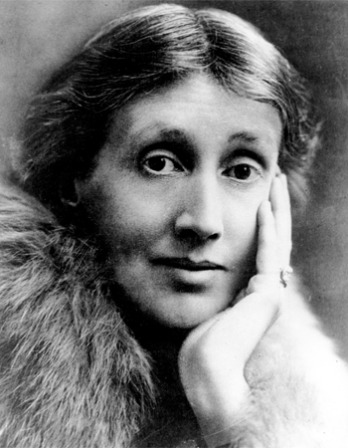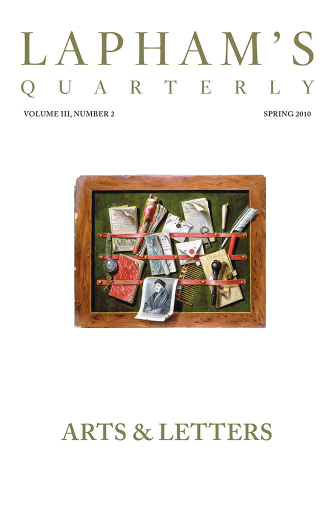As usual, what we call “progress” is the exchange of one nuisance for another nuisance.
—Havelock Ellis, 1914Hive Mind
Mark Twain on simultaneous invention.
Another of those apparently trifling things has happened to me which puzzle and perplex all men every now and then, keep them thinking an hour or two, and leave their minds barren of explanation or solution at last.
Here it is—and it looks inconsequential enough, I am obliged to say. A few days ago I said, “It must be that Frank Millet doesn’t know we are in Germany, or he would have written long before this. I have been on the point of dropping him a line at least a dozen times during the past six weeks, but I always decided to wait a day or two longer and see if we shouldn’t hear from him. But now I will write.” And so I did. I directed the letter to Paris and thought, “Now we shall hear from him before this letter is fifty miles from Heidelberg—it always happens so.”
True enough, but why should it? That is the puzzling part of it. We are always talking about letters “crossing” each other, for that is one of the very commonest accidents of this life. We call it “accident,” but perhaps we misname it. We have the instinct a dozen times a year that the letter we are writing is going to “cross” the other person’s letter; and if the reader will rack his memory a little, he will recall the fact that this presentiment had strength enough to it to make him cut his letter down to a decided briefness, because it would be a waste of time to write a letter which was going to “cross,” and hence be a useless letter. I think that in my experience this instinct has generally come to me in cases where I had put off my letter a good while in the hope that the other person would write.
Now I come to the oddest thing that ever happened to me. Two or three years ago, I was lying in bed, idly musing, one morning—it was the second of March—when suddenly a red-hot new idea came whistling down into my camp and exploded with such comprehensive effectiveness as to sweep the vicinity clean of rubbishy reflections and fill the air with their dust and flying fragments. This idea, stated in simple phrase, was that the time was ripe and the market ready for a certain book, a book which ought to be written at once, a book which must command attention and be of peculiar interest—to wit, a book about the Nevada silver mines. The “Great Bonanza” was a new wonder then, and everybody was talking about it. It seemed to me that the person best qualified to write this book was Mr. William H. Wright, a journalist of Virginia City, Nevada, by whose side I had scribbled many months when I was a reporter there ten or twelve years before. He might be alive still; he might be dead; I could not tell, but I would write him anyway.
I began by merely and modestly suggesting that he make such a book, but my interest grew as I went on, and I ventured to map out what I thought ought to be the plan of the work, he being an old friend and not given to taking good intentions for ill. I even dealt with details and suggested the order and sequence which they should follow. I was about to put the manuscript in an envelope when the thought occurred to me that if this book should be written at my suggestion and then no publisher happened to want it, I should feel uncomfortable, so I concluded to keep my letter back until I should have secured a publisher. I pigeonholed my document and dropped a note to my own publisher, asking him to name a day for a business consultation. He was out of town on a far journey. My note remained unanswered, and at the end of three or four days, the whole matter had passed out of my mind.
On the ninth of March, the postman brought three or four letters, and among them a thick one whose superscription was in a hand which seemed dimly familiar to me. I could not “place” it at first, but presently I succeeded. Then I said to a visiting relative who was present, “Now I will do a miracle. I will tell you everything this letter contains—date, signature, and all—without breaking the seal. It is from a Mr. Wright, of Virginia City, Nevada, and is dated the second of March—seven days ago. Mr. Wright proposes to make a book about the silver mines and the Great Bonanza and asks what I, as a friend, think of the idea. He says his subjects are to be so-and-so, their order and sequence so-and-so, and he will close with a history of the chief feature of the book, the Great Bonanza.” I opened the letter and showed that I had stated the date and the contents correctly. Mr. Wright’s letter simply contained what my own letter, written on the same date, contained, and mine still lay in its pigeonhole, where it had been lying during the seven days since it was written.
There was no clairvoyance about this, if I rightly comprehend what clairvoyance is. I think the clairvoyant professes to actually see concealed writing and read it off word for word. This was not my case. I only seemed to know, and to know absolutely, the contents of the letter in detail and due order, but I had to word them myself. I translated them, so to speak, out of Wright’s language into my own.
Wright’s letter and the one which I had written to him but never sent were in substance the same. Necessarily, this could not come by accident; such elaborate accidents cannot happen. Chance might have duplicated one or two of the details, but she would have broken down on the rest. I could not doubt—there was no tenable reason for doubting—that Mr. Wright’s mind and mine had been in close and crystal-clear communication with each other across three thousand miles of mountain and desert on the morning of the second of March. I did not consider that both minds originated that succession of ideas, but that one mind originated them and simply telegraphed them to the other.
I was curious to know which brain was the telegrapher and which the receiver, so I wrote and asked for particulars. Mr. Wright’s reply showed that his mind had done the originating and telegraphing and mine the receiving. Mark that significant thing, now: consider for a moment how many a splendid “original” idea has been unconsciously stolen from a man three thousand miles away! If one should question that this is so, let him look into the encyclopedia and con once more that curious thing in the history of inventions which has puzzled everyone so much—that is, the frequency with which the same machine or other contrivance has been invented at the same time by several persons in different quarters of the globe. The world was without an electric telegraph for several thousand years—then Professor Henry, the American; Wheatstone in England; Morse on the sea; and a German in Munich all invented it at the same time. The discovery of certain ways of applying steam was made in two or three countries in the same year. Is it not possible that inventors are constantly and unwittingly stealing each other’s ideas whilst they stand thousands of miles asunder?
This age does seem to have exhausted invention nearly. Still, it has one important contract on its hands yet—the invention of the phrenophone, that is to say, a method whereby the communicating of mind with mind may be brought under command and reduced to certainty and system. The telegraph and the telephone are going to become too slow and wordy for our needs. We must have the thought itself shot into our minds from a distance. Then if we need to put it into words, we can do that tedious work at our leisure. Doubtless the something which conveys our thoughts through the air from brain to brain is a finer and subtler form of electricity, and all we need do is to find out how to capture it and how to force it to do its work, as we have had to do in the case of the electric currents. Before the day of telegraphs, neither one of these marvels would have seemed any easier to achieve than the other.
While I am writing this, doubtless somebody on the other side of the globe is writing it, too. The question is, am I inspiring him or is he inspiring me? I cannot answer that, but that these thoughts have been passing through somebody else’s mind all the time I have been setting them down, I have no sort of doubt.

Mark Twain
From “Mental Telegraphy.” A member of the English Society for Psychical Research from 1884 to 1902, the American writer began recording telepathic experiences in his notebooks beginning in the 1870s. Though typically private about these beliefs, he published this essay in Harper’s New Monthly Magazine, along with a follow-up article, “Mental Telegraphy Again,” four years later. “I imagine that we get most of our thoughts out of somebody else’s head, by mental telegraphy,” he wrote in his autobiography, “and not always out of the heads of acquaintances but, in the majority of cases, out of the heads of strangers.”




